|
When I started writing Murder, We Spoke, I wanted to explore my personal fascination with true crime. What was it about this genre that compelled me to watch, investigate, snoop, dig, research? Over the course of three years, the podcast series developed and evolved into a much larger question, why true crime now? If you were to do a basic Google search and start typing, “Why is true…” Google search will auto populate the following:
WHY TRUE CRIME ALWAYS As I continued to workshop and rewrite Murder, We Spoke, the question of, is it nature or nurture, kept popping into my head. We often hear this question when we dive into the psyche of serial killers. But, maybe, we should apply this question to the history of humanity. As Marcus Parks from the popular comedy, true crime podcast, Last Podcast on the Left, likes to remind folks – it’s not, “Why true crime now?” It’s “Why true crime always?” Of course, there are folks – majority of those that identify as women – that say they consume true crime content to educate themselves. After all, the sad truth is the majority of victims in true crime narratives are often women (as well as people of color and members of the LGBTQ+ community). True crime helps women understand what’s going on inside the mind of a criminal and possibly learn new techniques that will keep them safe. I know that for myself, there is a soothing component to educating myself to the horrors of violence that surround me. I feel better prepared to spot red flags, defend myself, and avoid becoming a victim. (Yes, I know this last statement is a truly dark, sad reflection of current society, and shouldn’t be something that I NEED to educate myself on, but hey, that’s just the reality we live in right now. Another blog post for another time.) DECAPITATION, DISEMBOWELMENT, CANNIBALISM, OH MY! But I would be lying if I said my true crime intrigue ended with education. There is something inside me that is a little darker…a little more insidious. I guess that is really why I started writing Murder, We Spoke – to tap into the darkness inside me that compels me to learn about every gruesome detail of a crime. Decapitation, disembowelment, cannibalism, oh my! I’m grossed out, I’m appalled, I’m…hooked? Where did this grotesque gremlin inside of me come from? As I poured over the initial question of, “why true crime always,” I didn’t find an exact answer into the psychology of consuming violence (there are a ton of theories out there). But I did discover that throughout human history, true crime and violence has always been a form of entertainment for people around the world. Public executions, the violent spectacles inside of the Roman Colosseum or during the Inquisition, the Salem witch trials, burning people at the stake, beheadings, hangings, on and on and on throughout history. And the one thing all these violent acts had in common (other than pain and death) is the audience. All of these “events” had spectators come from near and far to watch as another human being’s life perished in front of their eyes. Some of these “events” even charged admission! Now, would I pay to watch someone be publicly executed? HELL NO! But, I do pay for Netflix and my watch history is filled with every true crime documentary imaginable. So, I guess, Murder, We Spoke, isn’t so much about whether true crime is good or bad. It is an exploration into our relationship with violence. Attraction, arousal, curiosity, education? I think it is a very personal answer for everyone. But no matter what the answer is, violence is a part of reality (sadly). Maybe, we are all just trying to find ways we can control it. Be sure to listen to Murder, We Spoke – a true crime narrative podcast series, produced by Tantrum East, coming in February 2023.
Recently, I had the privilege to go back in time. Depending on your relationship with your past, I highly encourage everyone to time travel. It’s pretty simple to do (for me at least). Here’s how I time traveled. I got in my car – a deep blue, Jeep Wrangler – and turned on some music. I found an old playlist that migrated from my 2004 iPod (remember those?) via iTunes to my Apple playlist. The playlist is titled, “Hyper.” I can’t quite remember why 15/16-years-old Rachel chose that title. Maybe I needed it to get revved up for school? I guess “hyper” at the time meant a mixture of Destiny’s Child, some solo Beyonce, Paramore, Alanis Morrisette, Fall Out Boy, Akon, Rihanna, Gwen Stefani, a sprinkle of Janet Jackson, Linkin Park, Simple Plan, Lil’ Jon, Green Day, My Chemical Romance, Petey Pablo, and Pitbull. By the time Chester Bennington (RIP) roared, “I’m one step closer to the edge…” I was already out of Rogers Park, and halfway down Lake Shore Drive, heading south. I got on the Stevenson, exited at my usual stop, Pulaski, to visit to my folks for a second. Then, I continued from West Lawn (my childhood home) and traveled further into the South Side of Chicago until I reached 115th and Pulaski. I made a right and just as Lil’ Jon and Usher got to their final “Yeah,” I parked my car in front of Marist High School. I already gave plenty of hints about how roughly old I am, so I won’t be saying anything like, “It’s been <insert number of years> since I parked outside this school in my parents’ white Jeep Wrangler.” But, let me just say, Marist recently posted a celebratory memory of going co-ed 20-years ago (so rude). Anyway, why am I here at my high school? Well, I’m here to help coach the Speech and Acting Team. I walk through the halls. Absolutely NOTHING has changed. The lockers are still the same, the tile floors, the layout, all of it! They upgraded some tech, of course, and the bathrooms got a renovation, but for the most part, this is exactly how I remember it. I easily find where the Speech and Acting Team is practicing. All you have to do is follow the sounds of voices pivoting from character to character. I follow the voices until I find a student talking to a wall, telling a passionate story about getting her first period. Only speech kids are wall-talkers. Once a Wall-Talker, Always a Wall-TalkerI enter the classroom where the team is gathered – they are practicing a mock tournament today, so everyone is dressed in suits, button downs, dress pants, etc…They look like young law students getting ready for their first trial. As I listen to the Decs (Declamation), OOs (Original Oratory), SOS (Special Occasion Speaking) and Informative speeches, I can tell the students are nervous. However, to an outsider, you would think these are some of the most confident high schoolers on the planet. Their bodies are poised, voices controlled, eye contact is specific…their communication skills are, quite frankly, unmatched for any average 14-17-year-old. I sit at a desk and watch each student perform – taking notes, offering critiques, etc – each time I look up from my notes at the student in front of me, I can’t help but feel like I’m looking in a mirror. Then, a rush of time nearly takes my breath away as I feel my entire life flash from 14-years-old to now. I stood where these students stood. Unaware of where I would go to college, oblivious to the obstacles of adulthood, naive to my future heartbreaks, ignorant to all the tough decisions and forks in the road I would meet. But most importantly, standing in this student's spot <insert number of years ago>, I had no idea where my time with the Speech and Acting Team would carry me. At the time, this was just an after school club. A place where I met friends and found a group of odd-ball kindred spirits. I felt supported and it’s through that support, I grew in confidence. I didn’t know it would become my career, my passion. Time Will TellI can unequivocally say, the Speech and Acting Team is the reason I am a writer today. I just wish I could go back in time and tell teenage Rachel that. All these questions and anxieties she had about the future, I just want to tell her, “Trust me, it works out!” I want to tell her that times will be tough. You’re going to face a lot, and I mean A LOT of rejection, flakey mentors, and gut-wrenching criticism that will make you curl-up into a ball on your couch. You will want to give up and think pursuing a career as a writer was the dumbest thing you’ve ever done. But then, you remember where you came from. I would tell teenage Rachel, The Marist Speech and Acting Team from your era has been long disbanded, but you create your own support team. Friends and family that help uncurl you from that ball and tell you to get back up. People that root for you, even if they are the only ones in the audience. But their cheers make it feel like it is a sold out room. Friends that are so incredibly blunt that when you threaten to quit and become an accountant they respond with, “Rach, you can’t quit. Writing is the only thing you’re good at, and you suck at Math.” At the end of the practice, I made my way out of the school and I passed by a classroom, THE classroom. The classroom where it all began <insert number of years ago>. I walked into this classroom scared, confused, and anxious about my future. Now, I stand in front of the classroom and feel my past, present, and future mix together into this feeling of gratitude.
I am so grateful to my friends and family that believed in me all these years, for every good and bad critique, for every practice session, and for every minute I was in that classroom, talking to walls. Thank you, Speech and Acting Team, for my past, present, and future. In honor of spooky season, I’m writing about ghosts...ghosting...theatre companies whose spirits haunt playwrights with echoes of promises like, “We love your work! We just don’t have the budget to produce it...right now.” Or something like, “You’re a promising artist. We can’t accept you into the program this year, but please apply again next year…and next year, and next year, and next year, neeeexxxxttttt yyyeeeeeeaaaarrrr….” On and on, those words are whispered into our ears and when we turn to see where the sound is coming from – WHOOSH – it disappears into the night. When I started my playwriting career, I was told opportunity would beget opportunity. Acceptance into a festival, conference, workshop, or reading would expand my network and introduce me to producers, literary managers, and artistic directors. These gatekeepers would see my work and give my plays a home on their stages. Take every opportunity. Say yes to everything. Big or small. With or without pay. It’s time to break this haunting curse. Here are four ways playwrights and theatres can rid ourselves of these ghosts.
Have I been accepted into playwriting workshops and festivals? Yes. Have I met amazing artists whom invested their time and talents into directing, acting, and designing my plays? Yes. Have the theatre companies that hosted these workshops and invited these artists to collaborate on my plays said wonderful things about all the work we completed and can’t wait to see the play taken to the next stage of development? Yes. Have those theatres ever offered to take the play to the next stage of development? Nope. Well, okay, a few (you know who you are). I would say out of all the festivals I’ve been a part of, in addition to all the opportunities I’ve been a semi-finalist for, only about 16% of those theatres actually did something, ANYTHING, to help further develop and/or promote the play. The other 84%, once the festival wraps, we all say our goodbyes, and then – 365 days later – the theatre company welcomes another play with another group of amazing artists and says the exact same words to them. A powerful spell is cast over all of us and we remain haunted by the promise that maybe, one day, they will make good on their words of new play advocacy. There are thousands of submission opportunities for playwrights to apply. And the cycle continues again and again, year after year. Thousands of opportunities, thousands of plays and not even half of those get accepted. And, way less than half of those accepted plays ever receive that next level of commitment from a theatre. We create a new play graveyard where the ghosts of apathy, disingenuity, and aloofness haunt our hopes of ever raising our plays from the grave. Let’s break this cycle, end this curse, and breathe life into old work, that is actually still new work viable for the stage.
|
About the BlogI write plays. I tell stories. I create content. I vent. I offer advice. I hope people will learn from my mistakes. Categories
All
Archives
April 2024
|
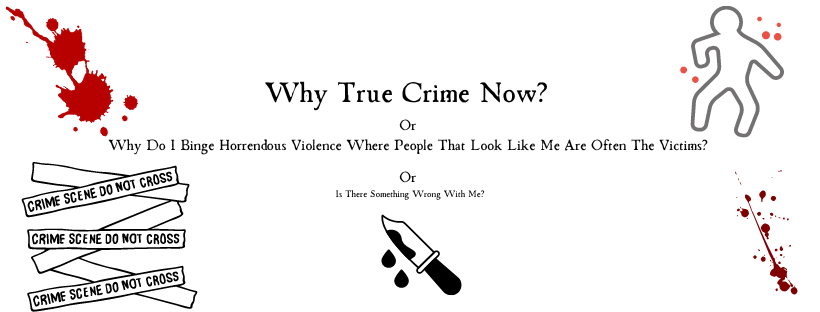
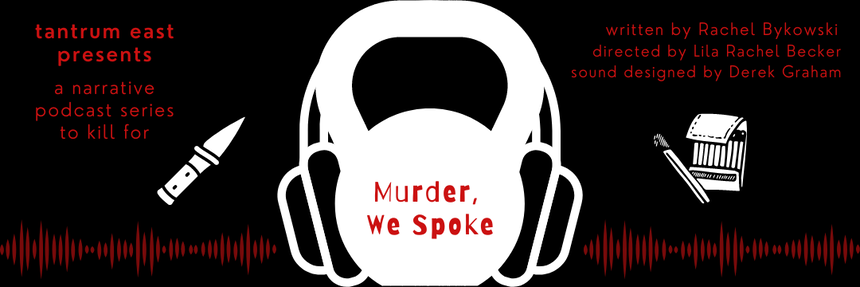

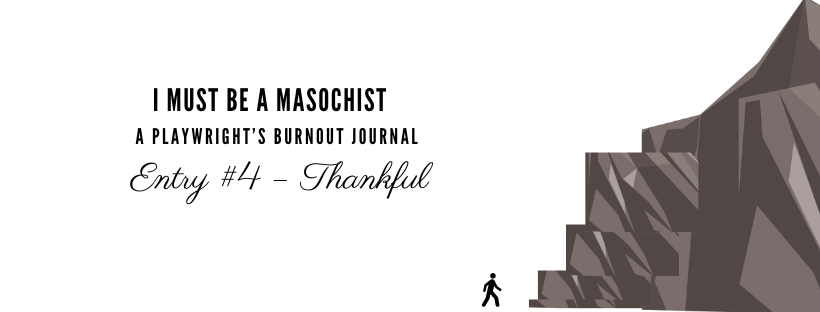


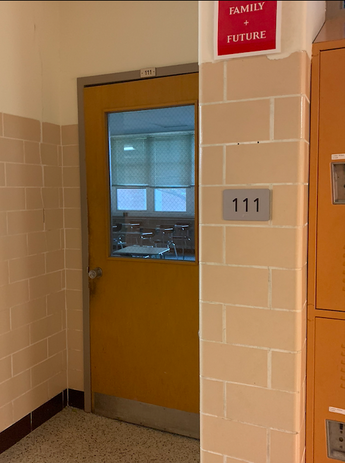
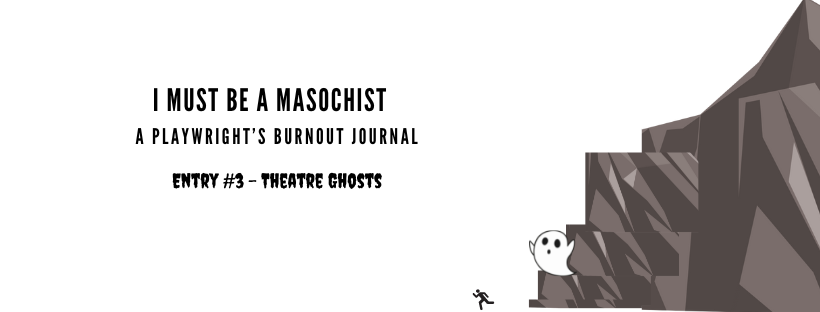

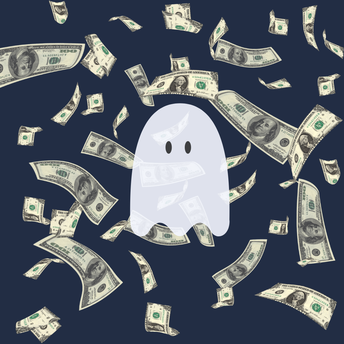
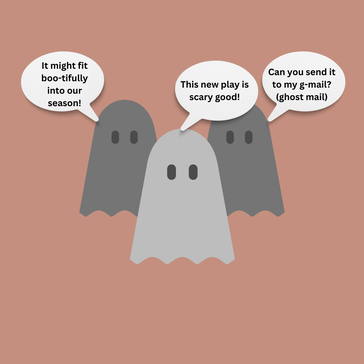



 RSS Feed
RSS Feed